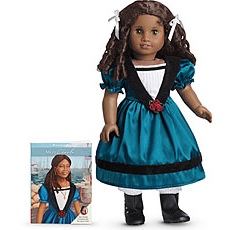Is your formerly likable 10- to 12-year-old transforming into a not-so-likable person? Don’t be alarmed: There is a short period of time when your children, who are not yet certified teenagers, start to exhibit behaviors that may be considered teenager-like.
Welcome to the joys of parenting the pre-adolescent! It is now your job to try to understand and accommodate these behaviors (up to a point!) and, at the same time, not take them personally.
Your child is not trying to push your buttons with malice and forethought. His sometimes annoying behavior is instigated by some very powerful developmental changes. It is as if he hit a certain age and his internal clock went off, alerting him that it is time to push for independence.
Understand preteens’ anxieties
Realizing that these natural behaviors are really a cover-up for their fearfulness and vulnerability about becoming independent can be helpful. Underneath her know-it-all attitude is a scared kid; her insistence on acting like a grown-up is as much to convince herself as to convince you.
This time of life is as frustrating for your child as it is for you because she is torn between wanting to be free of you and still needing you. Additionally, pre-adolescents are starting to worry about their bodies and how others perceive them. This may account for the 30-minute showers and the need to wear just the “right” clothes.
Don’t take their behavior personally
While many of these behaviors can be overlooked, parents can sometimes feel hurt or threatened when the conduct and language of their pre-adolescents seems downright nasty. Parents can rest easier when they know that these are normal characteristics and behaviors for the age. In order to move toward independence, the child must find his place among his peers.
If he is truly to become autonomous, he may have to risk offending you in order to separate from you. Again, try not to take it personally; many times the child is just blowing off steam and you are the one he feels most comfortable blowing it off to. Much of the time, pre-adolescents are driven by emotion, not reason.
Appreciate that their strong emotions and displeasing behaviors are a manifestation of your children just “doing their job” of growing up. Accepting your pre-teens, without feeling like you have to agree with them or change them, is a step in the right direction.
Find a behavior balance
 As usual in parenting, a balance is important. Understanding a pre-adolescent’s behavior is key; yet it is not the same as allowing her to behave in inappropriate ways. You may need to implement logical consequences for behaviors that grossly exceed your standards. Set the limits for her sometimes overly demanding wants and needs with no apologies and without criticism.
As usual in parenting, a balance is important. Understanding a pre-adolescent’s behavior is key; yet it is not the same as allowing her to behave in inappropriate ways. You may need to implement logical consequences for behaviors that grossly exceed your standards. Set the limits for her sometimes overly demanding wants and needs with no apologies and without criticism.
Remember that her behavior is not always based on reason, or at least your reasoning, so you don’t have to spend time arguing and trying to convince her that she is wrong and you are right. If she is pressuring you with an unreasonable request, you can say, “I’ll have to think about it and get back to you later” or “I have to do what is best for you and/or the family right now.”
Tips for riding out the storm
- Choose your battles carefully. Settle for less than perfection on issues that are not important in the overall scheme of things.
- Remain calm and try not to match your child’s level of intensity.
- Be available for your pre-adolescent without trying to control his schedule. The time that he wants you is often at his choosing and convenience, not yours.
- Help him make smart decisions by considering alternative behaviors that will meet her goals and keep her safe, while still meeting your standards.
- Establish networks with parents of your pre-adolescent’s friends, even if they are new to you and your pre-teen is opposed to your meeting them.
- Be aware of your child’s temperament. The degree of intensity of his behavior at this time is also based on his unique temperament.
- Listen without reacting or judging. Let your pre-adolescent know she can always call on you when in trouble, without fear of punishment.
- Re-think your restrictions and offer a little more freedom, balancing privileges with increased responsibility. Although it won’t always be easy, you can pull back if you find your child can’t handle the new freedoms.
- Let him know when he has done a good job of something, despite the fact that he may seem unreceptive or uncommunicative.
- Read up on child development.
- Remember that each child follows her own individual time schedule. While behaviors of the general age group are typical, your child may start at an earlier or later age than her peers.
Raising a pre-teen is one of the hardest stages of your parenting journey. While there are no guarantees, don’t lose faith in your child’s essential goodness and trust in his capacity to grow into a healthy, caring adult. There may well be ups-and-downs as your child proceeds toward maturity. Contrary to what many parents think – and although he may not let on to himself or to you – he still needs you to remain a constant source of support, guidance, and encouragement in his life.
Claire Gawinowicz is a certified parenting educator for the Center for Parenting Education. This article is reprinted with permission.






